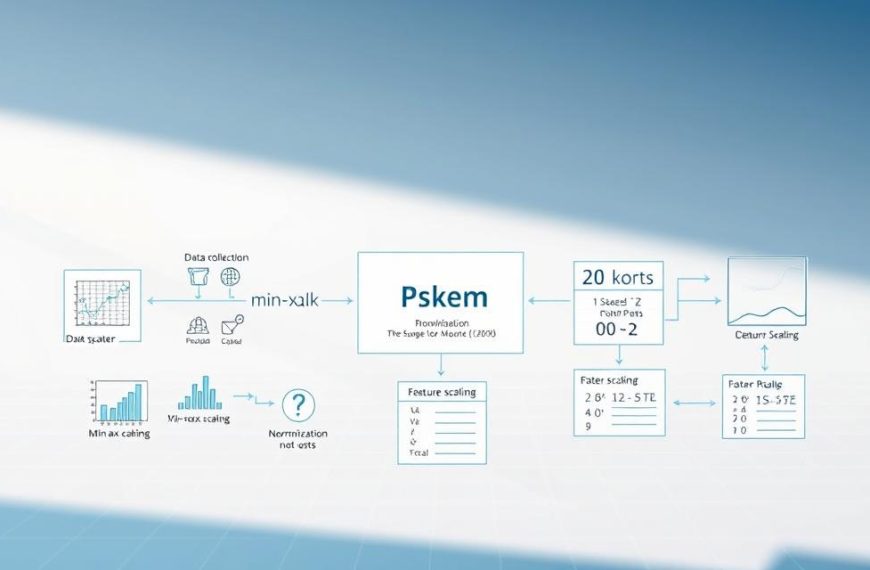In today’s technology-driven world, specialised credentials have become a focal point for professionals navigating competitive industries. The rise of machine learning as a transformative force across sectors – from the National Health Service to British financial services – raises critical questions about the value of formal qualifications in this field.
Demand for technical expertise has surged, with employers increasingly prioritising verifiable skills in areas like neural networks and deep learning. Credentials now extend beyond basic programming, covering advanced applications that align with real-world challenges in automation and data analysis.
For UK-based practitioners, these programmes offer more than theoretical knowledge. They provide locally relevant frameworks addressing regulatory standards and industry-specific needs within Britain’s tech ecosystem. This alignment strengthens career prospects while fostering practical adaptability.
However, the landscape requires careful navigation. Not all credentials carry equal weight, and professionals must assess how certifications complement existing experience. The right choice could unlock roles in fintech hubs like London or Manchester’s AI research clusters.
Introduction to Machine Learning Certifications
Modern enterprises now treat AI capabilities as critical infrastructure rather than experimental projects. This shift has created a skills gap, with 73% of UK tech leaders reporting shortages in qualified personnel. Specialised training programmes have emerged as vital tools for career advancement.
Overview of the AI Revolution
Business processes now integrate predictive analytics at unprecedented scales. From automating NHS patient triage systems to optimising London stock trades, intelligent algorithms drive decision-making. The table below illustrates key industry transformations:
| Industry | Key Applications | Data Requirements |
|---|---|---|
| Healthcare | Diagnostic imaging analysis | Patient records & genomic data |
| Finance | Fraud detection systems | Transaction histories |
| Retail | Demand forecasting | Consumer behaviour metrics |
| Energy | Grid optimisation | Sensor network outputs |
Relevance for Professionals in the United Kingdom
Britain’s tech sector employs over 2.9 million workers, with machine learning roles growing 34% annually. Salaries average £62,000 for mid-career specialists – 22% above general IT positions. Major recruiters include fintech firms and smart manufacturing pioneers.
Public sector adoption accelerates this demand. Local councils use predictive models for urban planning, while DEFRA applies environmental monitoring systems. Professionals combining technical expertise with sector-specific knowledge lead this transformation.
Understanding Machine Learning Certification
Professional credentials act as gateways to emerging opportunities in data-driven sectors. A machine learning certification validates practical abilities in designing systems that analyse patterns and automate decisions. Unlike academic degrees, these programmes emphasise workplace-ready competencies through hands-on assessments.
Defining Certification and Its Scope
These credentials confirm mastery in applying algorithms to solve business challenges. Typical programmes cover:
- Statistical modelling principles
- Neural network architectures
- Real-world deployment strategies
Vendor-specific options from firms like Google or Microsoft focus on proprietary tools. Platform-agnostic certifications assess broader concepts applicable across industries. The table below compares common programme structures:
| Certification Type | Focus Area | Assessment Method |
|---|---|---|
| Vendor-Specific | Tool proficiency | Cloud platform projects |
| Generalist | Theory application | Case study analysis |
| Specialist | Industry solutions | Portfolio reviews |
Updating mechanisms ensure content stays relevant. Many providers revise curricula biannually to include breakthroughs like transformer models. This adaptability helps professionals maintain cutting-edge knowledge without returning to university.
Assessments often combine coding tests with scenario-based evaluations. Successful candidates demonstrate both technical skills and problem-solving logic. Such practical validation appeals to UK employers prioritising immediate productivity.
Is there any certification for machine learning?
Specialised qualifications in advanced analytics have become essential differentiators for tech careers. With 82% of UK hiring managers prioritising verified competencies, credentials demonstrate mastery of complex systems like decision trees and reinforcement learning frameworks.
Benefits and Credential Validation
Accredited programmes bridge theoretical knowledge with workplace demands. Industry leaders like AWS and DeepMind design assessments simulating real challenges – from optimising energy grids to detecting financial anomalies. One IBM study found certified specialists achieve 40% faster project deployment.
Key advantages include:
- Portfolio-ready case studies demonstrating data pipeline expertise
- Direct alignment with Britain’s AI Safety Institute standards
- Peer benchmarking through collaborative coding exercises
Industry Recognition and Practical Skills
London’s fintech sector particularly values credentials from cloud providers. Goldman Sachs’ 2024 tech hiring report notes:
“Candidates with validated deployment skills shorten onboarding by 6-8 weeks”
These programmes foster career mobility through:
- Access to private job boards with roles at HSBC AI Labs
- Cross-industry networking events in Manchester’s tech corridor
- Continuous learning modules addressing GDPR-compliant AI
While experience remains vital, structured credentials provide measurable benchmarks. They enable professionals to showcase niche abilities – whether refining NHS diagnostic models or enhancing retail personalisation engines.
Comparing Top Certification Providers
Navigating the expanding landscape of credentials demands clear insights into programme structures and outcomes. Leading providers offer distinct approaches tailored to varying career stages, budgets, and technical priorities.
Insights from MIT Professional Education
MIT’s rigorous programme combines academic depth with practical application. Participants complete 16+ days of coursework (£2,500-£4,700), accessing cutting-edge research from MIT’s Computer Science lab. This option suits professionals seeking exposure to experimental models and theoretical frameworks.
Highlights from AWS, Google Cloud and Microsoft Programmes
Cloud platforms dominate industry-aligned training. AWS Certified Machine Learning Specialty ($300) tests deployment skills through 65 scenario-based questions. Google’s 3-6 month course emphasises production pipelines, while Microsoft’s Azure certification focuses on interpreting data patterns.
| Provider | Cost | Duration | Focus |
|---|---|---|---|
| AWS | $300 | 2-3 months | Real-world ML solutions |
| Google Cloud | $200 | 3-6 months | ML engineering workflows |
| Microsoft | $165 | 2-3 months | Predictive analytics |
Budget-conscious learners might consider Andrew Ng’s Coursera specialisation ($49/month). For enterprise roles, Databricks’ $200 exam validates ML platform expertise. Each pathway offers unique advantages – from MIT’s research connections to AWS’s industry recognition.
Practical Applications of Machine Learning Certifications
Solving complex business problems requires more than theoretical expertise – it demands precise execution of technical strategies. Certified professionals bridge this gap by applying standardised methodologies to diverse operational challenges.
Real-World Deployment Scenarios
From London’s financial districts to Midlands manufacturing plants, credentials enable specialists to implement impactful solutions. Common applications include:
- Fraud detection systems analysing 1M+ transactions daily for UK banks
- Predictive maintenance reducing downtime in automotive factories by 37%
- Personalised recommendation engines boosting e-commerce conversions by 22%
One NHS case study demonstrated how certified engineers improved diagnostic accuracy by training models on 500,000 anonymised patient scans. Such outcomes validate the practical value of structured learning pathways.
Integration of Theoretical Knowledge with Practical Tools
Effective implementation combines mathematical principles with industry-standard platforms. Professionals frequently utilise:
- TensorFlow for building neural networks in healthcare analytics
- Apache Spark processing real-time data streams for energy firms
- PyTorch developing computer vision systems in retail
Cloud platforms like AWS SageMaker enable seamless deployment, while statistical frameworks ensure regulatory compliance. This fusion of academic rigour and technical proficiency drives measurable business outcomes across Britain’s tech landscape.
Certification Courses and Programme Details
Structured training pathways differ significantly across providers, requiring careful evaluation of commitments and outcomes. Leading institutions design curricula balancing theoretical depth with workplace relevance, though entry barriers and resource investments vary.
Course Costs, Duration and Prerequisites
MIT’s intensive modules demand 2-3 years’ experience, with core options spanning:
- Foundations courses: £2,500 for 2-day sessions
- Advanced specialisations: Up to £4,700 over 5 days
Cloud platforms adopt more accessible models. Google Cloud requires 3+ years’ industry exposure, including 12 months using their tools. AWS candidates need 2 years’ platform-specific knowledge, while Microsoft prioritises Python and Azure competencies.
Exam Structure and Learning Experience
Assessments test both technical prowess and practical application:
| Provider | Exam Format | Duration |
|---|---|---|
| AWS | 65 scenario-based questions | 170 minutes |
| Google Cloud | 50-60 problem-solving tasks | 120 minutes |
| Academic Programmes | Portfolio submissions | Weeks/Months |
Blended learning approaches combine video lectures with live coding sessions. Many incorporate case studies from UK sectors like fintech and healthcare.
Hands-On Projects and Community Engagement
Practical components often involve:
- Building fraud detection models for banking datasets
- Optimising NHS patient flow algorithms
- Developing retail demand forecasting systems
Post-certification benefits include access to alumni networks and private job boards. Collaborative platforms enable ongoing knowledge exchange, particularly valuable within Britain’s concentrated tech hubs.
Career Advancement through Certifications
In Britain’s evolving tech sector, validated expertise serves as a career accelerator for ambitious specialists. Structured credentials enable professionals to demonstrate mastery of emerging technologies, positioning them for roles requiring strategic oversight. Many secure promotions within 18 months, with certified engineers reporting 28% higher salaries than peers.
Enhancing Professional Profiles and Networking Opportunities
Credentials unlock access to private forums and recruitment drives hosted by firms like HSBC Innovation Labs. Industry-specific events in London and Edinburgh foster connections with decision-makers from fintech and healthcare sectors. These platforms often lead to collaborative projects addressing real challenges, from NHS data optimisation to retail forecasting systems.
Mid-career transitions prove particularly rewarding. Software developers gain pathways into AI architecture roles, while analysts evolve into machine learning strategists. Leadership positions increasingly demand proven experience in deploying ethical frameworks – a core component of accredited programmes.
Beyond technical skills, certifications signal commitment to continuous development. Employers value this dedication, with 68% of UK tech firms prioritising certified candidates for senior roles. For professionals eyeing consultancy or specialised positions, these qualifications provide tangible proof of cutting-edge capabilities.
FAQ
What practical skills do machine learning certifications offer?
Programmes from providers like AWS, Google Cloud and Microsoft focus on real-world tools, algorithms and frameworks. Learners gain hands-on experience in deploying models, data processing and optimising algorithms for business applications.
How do certifications enhance career prospects in data science?
Credentials from institutions like MIT Professional Education validate expertise in deep learning, analytics and model development. They signal proficiency to employers, often improving opportunities for roles in AI engineering or big data analysis.
Are there prerequisites for enrolling in these programmes?
Most courses require foundational knowledge in programming (Python/R) and statistics. Advanced certifications may demand prior experience with neural networks or cloud platforms like Microsoft Azure.
What is the typical duration of a certification course?
Programmes range from 3-month intensive courses to 12-month part-time studies. Platforms like Coursera offer flexible schedules, while vendor-specific training from AWS often includes 40-60 hours of coursework.
How do industry-recognised certifications differ from academic qualifications?
Certifications from Google Cloud or IBM prioritise applied skills in deploying scalable models using TensorFlow or PyTorch. Academic degrees provide broader theoretical foundations, whereas credentials focus on immediate technical competencies.
Do certifications cover emerging technologies like generative AI?
Leading providers now integrate topics like natural language processing and generative models. Microsoft’s AI certifications, for instance, include modules on OpenAI services and ethical AI deployment.
What costs are associated with machine learning certifications?
Fees vary widely: vendor-specific programmes (e.g., AWS Machine Learning Specialty) cost £200-£400, while university-affiliated courses through edX or Coursera may charge £1,000-£3,000 for verified certificates.
How do hands-on projects enhance the learning experience?
Programmes like Google’s Professional Machine Learning Engineer certification require building predictive models and optimising hyperparameters. These projects simulate industry challenges, bridging theory and practical implementation.


















